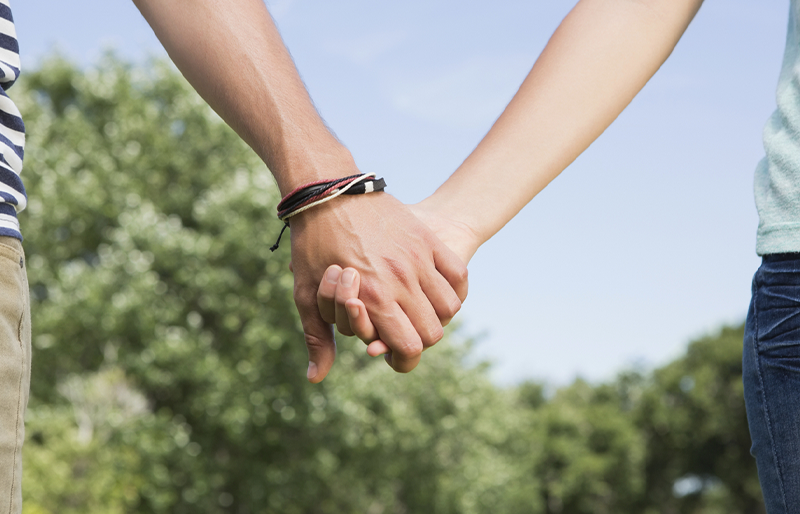24X7 Available flexible support

Top Rated in India
- ★
- ★
- ★
- ★
- ★
B-38, Sector 14, Gurugram, Haryana 122001
Dating and Romantic Relationships

While dating can be a way for youth to learn positive relationship skills like mutual respect, trust, honesty, and compromise, it also can present challenges. Youth in relationships with the following features may be at risk:
Adolescents and caring adults can learn to spot warning signs that a friendship or romantic relationship is unhealthy. Violence is not the only important sign. Unhealthy relationship behaviors can include:
Some youth find themselves in violent dating relationships. Dating violence can be emotional, physical, or sexual. Dating violence also includes stalking.
Emotional violence is when one partner threatens the other or harms his or her sense of self-worth or self-esteem. Emotional violence includes things like calling names, behaving in a controlling or jealous way, monitoring the other person constantly, shaming, or bullying. Emotional violence also happens when someone keeps the other away from friends and family.
Physical violence is when someone pinches, hits, shoves, slaps, punches, or kicks their partner.
Sexual violence is when someone forces a partner to have sex or engage in sexual activities when he or she does not or cannot consent. Force can be physical or nonphysical. An example of nonphysical violence is when someone threatens to spread rumors if a partner refuses to have sex.
Stalking is any form of repeated and unwanted contact that makes a person feel unsafe.Unfortunately, adolescents experience these forms of violence too often. Among adolescents who dated in the past year:
Eight percent reported being hit or physically hurt by a partner.
Almost one in three reported being emotionally abused by a partner.
Seven percent reported being forced by a partner to have sex or engage in sexual activities—like kissing or unwanted touching.
When dating violence occurs, it is common for both adolescent partners to be violent. In fact, 84 percent of youth ages 12-18 who survived dating violence also behaved violently. Adolescent boys and girls also experience similar rates of violence. About 69 percent of girls and 69 percent of boys who dated in the past year experienced some type of violence.
CyberstalkingTechnology gives youth new chances to be stalked by a current or former dating partner. Cyberstalking includes:
Unwanted, frightening, or offensive emails, text messages, or instant messages (IMs)
Harassment or threats on social media
Tracking computer and internet use
Using technology such as GPS to track a person
HOW TO HELP YOUR CHILDParents play an important role in supporting their Teenages through relationships – from role modelling positive behaviours to offering support and a listening ear. When young people start dating, there’s a whole lot of emotion and expectation attached. Being prepared on how to deal with it will help your child with their own romantic relationships. It will also ensure that you maintain your bond and stay connected with your child while they’re going this very intense and exciting period.
This can help if you:Beginning romantic relationships is a major part of growing up. It can be uncomfortable for some parents to come to terms with their child dating. It’s normal to feel scared, worried or sometimes sad about it. You may even feel the urge to discourage your child from pursuing relationships in their teens, but the truth is it won’t always work. Teenage relationships come naturally with adolescence, just like acne, facial hair or mood swings- it’s completely normal, so it’s best to embrace it!
How will my Teenage experience romantic relationships?It will be a bit of a rollercoaster. There are a lot of emotions involved when teens start dating. Not only is adolescence overwhelming enough with school stress, navigating friendships and dealing with hormones- relationships add a whole other layer to the cake. When teens begin romantic relationships it’s exciting, it’s consuming, it’s fun and it’s sometimes heartbreaking. So be prepared to deal with a whole spectrum of emotions by letting your child know that they can come to you in the good times, as well as when things are getting tough.
They may be distracted. Chances are when your teen is in a relationship, it might feel like that’s all they can concentrate on or care about. This is particularly true if it’s a new relationship. But let’s face it, this doesn’t change that much when people get older. The beginning of a relationship is often the most exciting and the most time consuming. If you’re concerned with the amount of time your child is spending with their boyfriend or girlfriend, make sure you communicate this to them while also being supportive and open to a discussion.
How can I help my Teenage engage in a healthy romantic relationship?The best way to show support is to be open to talking about their relationship. Let your child know that they can come to you for support, and be sure not to be dismissive of their experiences. Depending on their age, you may need to have a conversation around sex - try not to be judgemental so they feel like they can come to you with anything. Let’s face it - the most influential people in a Teenage’s life are often the adults around them. The single most important thing you can do as a parent is to be a positive role model, by engaging in respectful relationships with the friends and family that you yourself care about. This is critical to your child being able to understand what a respectful and healthy romantic relationship looks like, and how to create one. In addition, make sure you talk to your child about respectful relationships as this is an important step in them recognising respectful relationships, and importantly, when they might not be in one.

